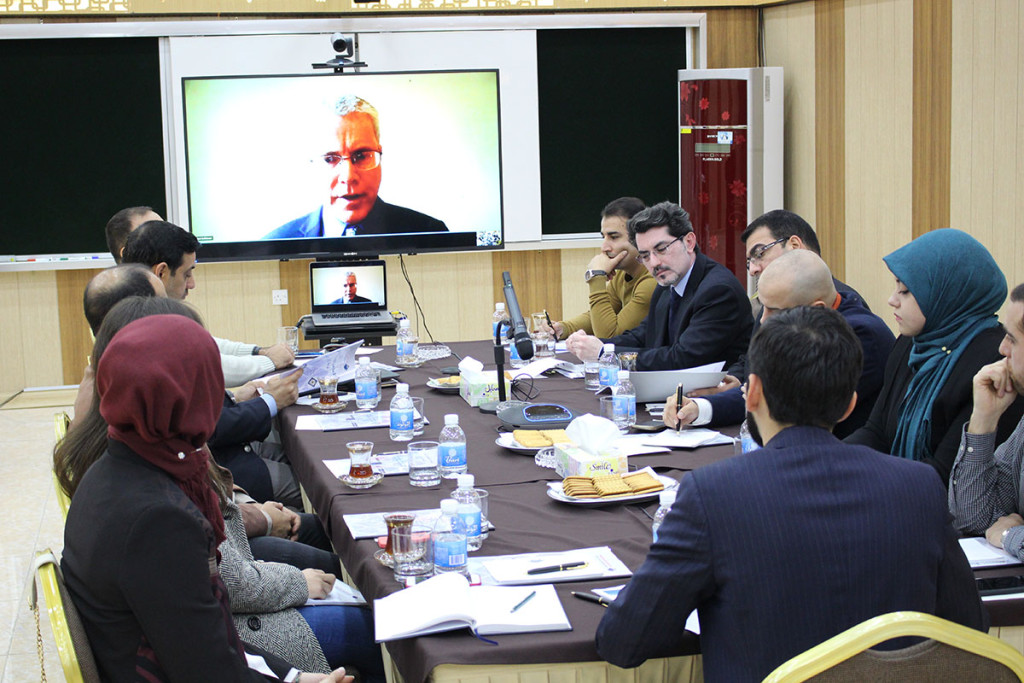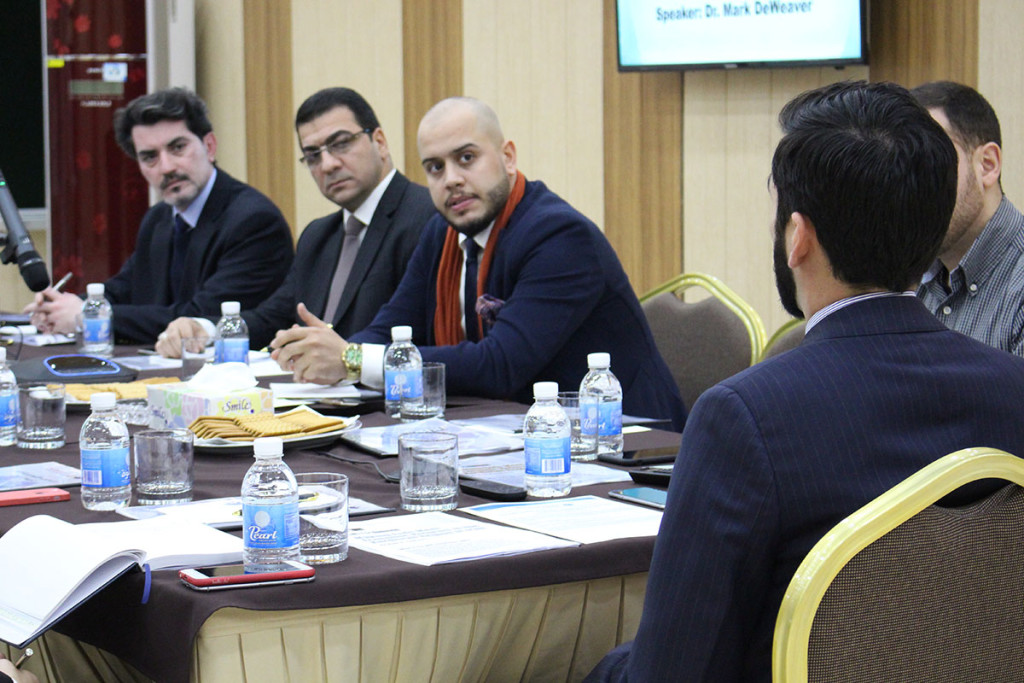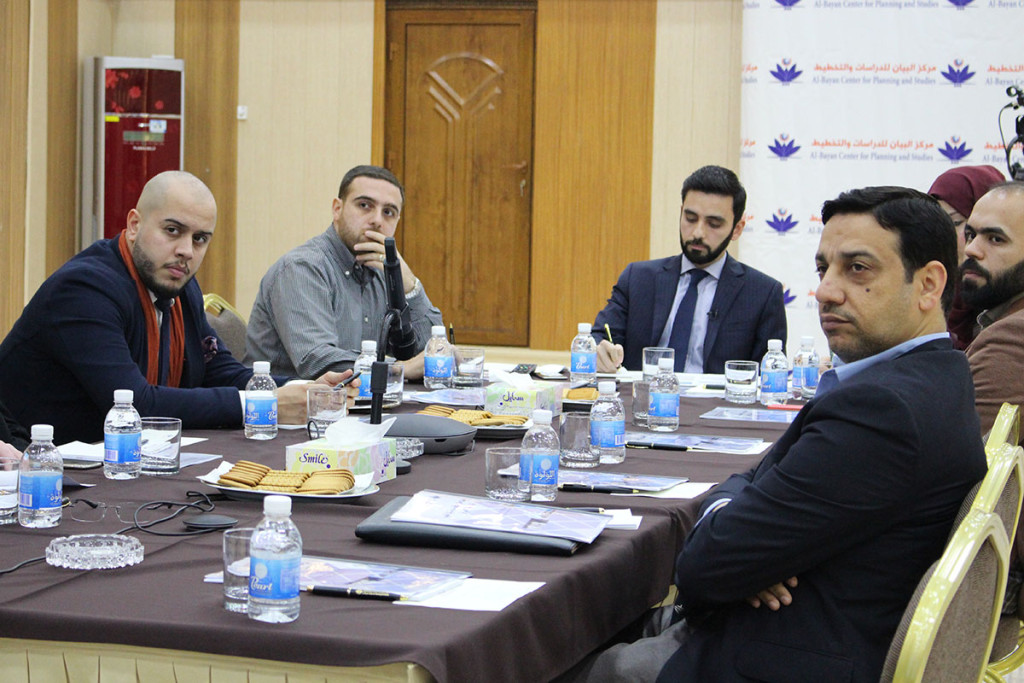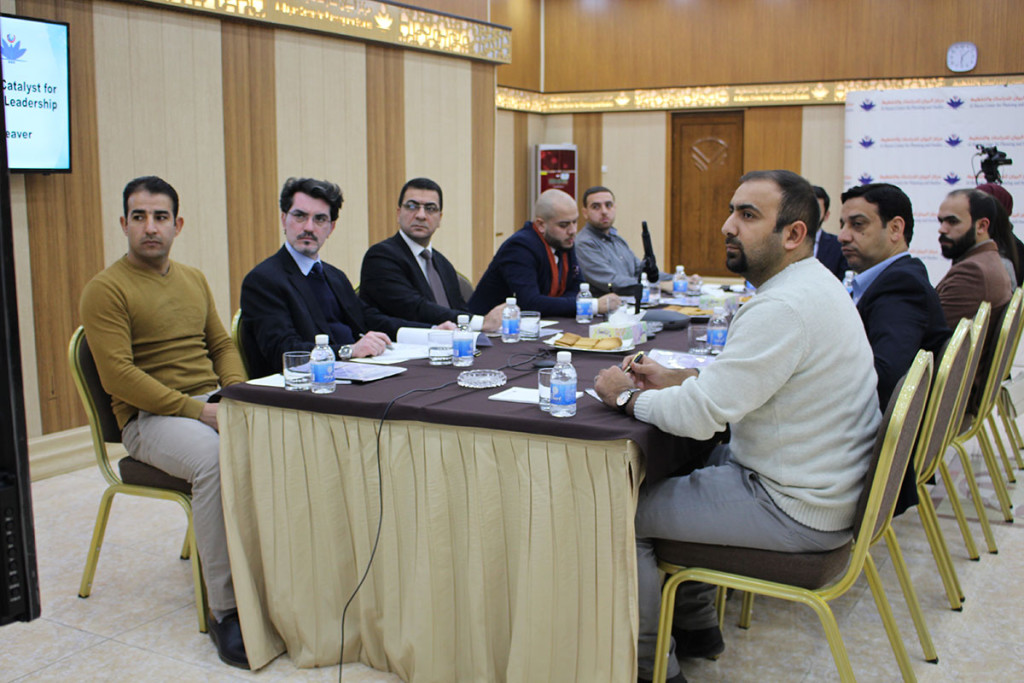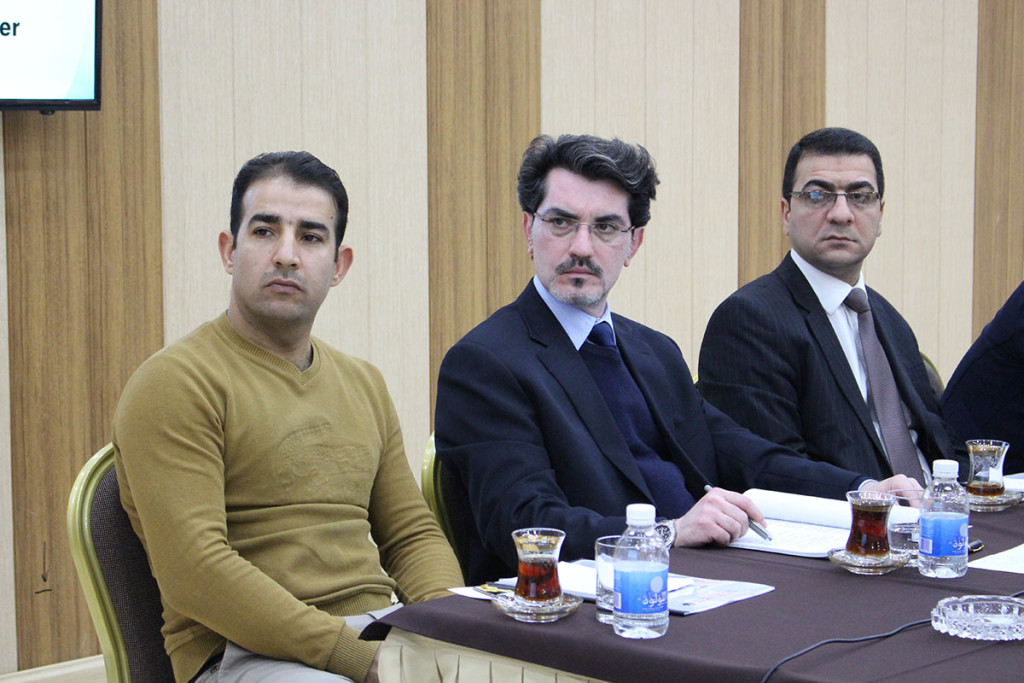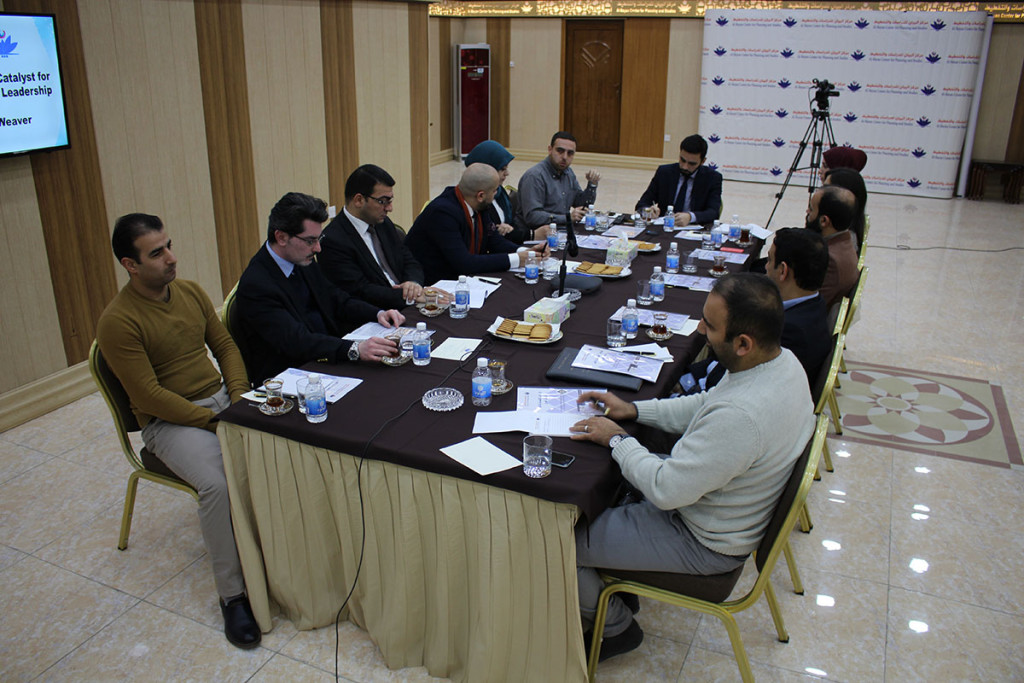As world leaders gather for the 47th annual meeting of the World Economic Forum in Davos to discuss global challenges and the imperative of “responsive leadership”, Al-Bayan Center for Planning and Studies hosted a roundtable discussion on January 17 entitled, “The KRG Budget Crisis as a Catalyst for Responsive and Responsible Leadership”. The discussion featured a presentation by Dr. Mark DeWeaver from Washington, DC, who addressed a group of academics and practitioners about how the budget crisis in the KRG is forcing leaders to become more responsive and responsible.
Dr. DeWeaver is an emerging markets fund manager, independent economist and author. His publications include the Animal Spirits with Chinese Characteristics: Investment Booms and Busts in the World’s Emerging Economic Giant. Dr. DeWeaver is also a non-resident fellow at the Institute of Regional and International Studies at AUI-S, where his research focuses on economic conditions in Iraqi Kurdistan.
The discussion focused on:
- Genesis of the KRG’s budget crisis
- Reduction of payroll spending and introduction of biometric registration for public sector employees
- Improving tax collection
- KRG oil and gas audits
- Outstanding obstacles to reform
Dr. DeWeaver explained how major salary cuts for public sector employees in the Kurdistan Region had resulted in significant absenteeism, including strikes by school teachers. He discussed how biometric registration has been introduced in order to tackle the problem of “ghost” employees, but noted that it would take about 5 years to fully complete the project. On enhancing collection of taxes, Dr. DeWeaver discussed the existing problems with enforcing a presumptive tax system, given that auditing of private companies by authorities does not currently exist. The importance of transparency in the oil and gas sector was highlighted and Dr. DeWeaver concluded by stating that there are short-term obstacles, such as poor management, but the long-term challenge of economic diversification will be particularly difficult while oil prices remain low.
You can learn more about the issues raised in the round table discussion by reading Dr. DeWeaver’s recently published paper in the Institute of Regional and International Studies.

